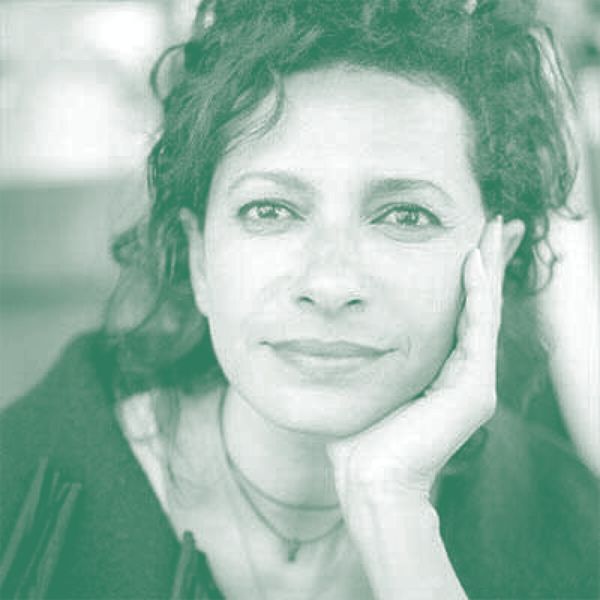Kiva Board Chair Julie Hanna reflects on her own refugee story
June 14, 2021
As you’re reading this, almost 80 million people are displaced from their homes and/or their homeland. They have been forced to leave everything and everyone they know, forced to rebuild their lives under the most improbable of circumstances.
Refugees are entrepreneurs, educators, doctors, engineers, artists, parents, neighbors, friends. Lending to refugees is no different than lending to a small business owner in your own local community, and it’s easy to do with Kiva. While traditional banks have deemed lending to refugees far too risky, the Kiva community has lent over $20 million to refugees in just the past 5 years. The repayment rate has held at 95.5%, demonstrating that they are indeed creditworthy.
In honor of World Refugee Day, we spoke to Kiva’s Executive Board Chair, Julie Hanna, about her own experience surviving and being displaced by the violence of the Black September war.
Meet Julie Hanna
Julie Hanna has served as Kiva’s founding Executive Board Chair since 2009. She is a technologist and a serial entrepreneur. Julie is also a Venture Partner at Obvious Ventures, Senior Advisor to X Development, and served as Presidential Ambassador for Global Entrepreneurship under Barack Obama.
Julie’s journey to the front lines of the tech revolution began on the front lines of war.
She has drawn on her experiences as a refugee to advocate for and architect systems that break down structural barriers that leave billions of people overlooked and underserved. Julie has worked to harness the democratizing potential of technology to level the playing field and enable fair access toward a more just and equitable world.
From Egypt to Jordan to the U.S.: Julie’s refugee story
Julie was born in Egypt and moved to Jordan with her family as a young girl. Then Black September war broke out, a brutal and bloody battle between Jordan, the PLO and Israel. Julie’s family were living in Irbid, a Jordanian city that borders Israel, which became the front line of the war.
“We came home to find rebel soldiers living on the roof of our home. With that came the dark realization that we had become their human shields.”
“We were fired on and bombed almost daily for two years. It was a day-to-day, minute-by-minute state of survival,” said Julie.
Even the act of going to school put Julie in danger: “My last memory of Black September was during a ceasefire that had allowed us to return to school. Alarms went off and when I looked up, I saw army tanks coming directly toward our one-room schoolhouse. We fled on foot into the countryside, eventually making our way to Beirut, Lebanon.”
Not long after, the tensions that would give way to the civil war in Lebanon peaked.
Eventually, Julie and her family managed to escape the unrest and immigrate to the United States.
 Beirut, Lebanon today. (Photo by Sara Calado)
Beirut, Lebanon today. (Photo by Sara Calado)
Julie’s relationship with Kiva
“Kiva is a profound expression of my professional, personal and philosophical journey,” Julie explained.
In 2009, when Julie began her work with Kiva, she was an accomplished entrepreneur having built tech companies like Healtheon (now WebMD), onebox.com (now Unwired Planet) Portola (acquired by Netscape) and Plum (acquired by Nokia) from the ground up.
“My profession and financial success is the direct result of people giving me a fair shot. I was fortunate enough to meet people who took a chance on me and gave me access to opportunities that I wouldn’t have gotten otherwise because of my lived experience, the economics of my family, how I looked, talked and the myriad other differences I carry.”
“I’ve come to believe that a vital cornerstone of justice and a pillar of dignity is fair access. Especially fair access to capital which is foundational,” Julie told us. “Kiva married the principles of microfinance with the internet to invent the crowdfunding model. This has democratized access to parts of the world where capital would not otherwise flow and on a mass global scale.”
Hope for the future of refugees
Refugees figure out how to survive, thrive even, while navigating the most uncertain, adverse circumstances humans can be confronted with. No rules, no support, no playbook.
This is why Julie believes great strength is born from this adversity.
“The refugee experience builds the greatest adversity and resilience muscles, which are also foundational to the entrepreneurial grit so highly prized, especially here in Silicon Valley,” Julie explained.
“As investors, the scrappiness and ingenuity to create something out of nothing is what we look for in entrepreneurs. Refugees naturally possess these qualities.”
She says compelling and quantitative evidence of this is the loan repayment rate of refugee borrowers on Kiva. Julie points out: “Under the most adverse circumstances, living on the edge of risk, [refugees] somehow manage to repay their loans better than most people in the world.”
A reminder of the many gifts refugees bring to the world and their communities.
We are grateful to Julie for sharing her story. Supporting the futures of refugees is the best way to show both compassion and valuation. Lend to the businesspeople, family members, and community members that make up the refugee borrowers on Kiva.
PREVIOUS ARTICLE
New leadership for Kiva’s new era of expansion and impact: Welcome Chris and Silvija! →NEXT ARTICLE
Honoring Juneteenth →












